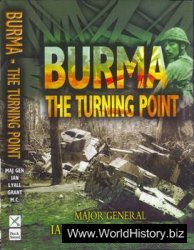Reading the ancient sources is the essential, and the most enjoyable, start. Overviews of Roman literature, not always from a historical point of view: Kenney 1982; Gabba 1983; Potter 1999, Harrison 2005. OCD3 is fundamental. Dramatic and poetic texts: Gratwick 1982a-d; Gruen 1992: 6-83, 183-317; papers in Taplin 2000: 1-74, Wiseman 1998: 1-59, 64-74. Fragmentary Roman historians: Peter (1906-14) and Jacoby (FGrH IIIC) are still fundamental; more recently Chassignet (1996, 1999, 2004), Beck and Walter (2001, 2004); see also Badian 1968b; Frier 1999; Brunt 1980c. Priestly records: Beard, North, and Price 1998: ch. 1. On antiquarians: Rawson 1985; Cornell 1995: 18-26; Kaster 1995.
On literary theory see Martindale 1993; de Jong and Sullivan 1994; Fowler 2000; and Heath 2002. On rhetoric and invention in Roman historiography: Wiseman 1979; Woodman 1988; Pelling 1990b; papers in Wiseman and Gill 1993; Wiseman 1994c; Kraus and Woodman 1997; versus Cornell 1986b; Northwood forthcoming. On ancient historiography see papers in Luce 1982; Marincola 1997; Kraus and Woodman 1997; Mellor 1999. On Polybius: Walbank 1972 and 2002: 1-27;
Marincola 2001: 105-49. On Cicero: Habicht 1990; Mitchell 1991; Fuhrmann 1992; Rawson 1994a; his oratory: Vasaly 1993; Gotoff 1993; the letters: Hutchinson 1998. For Caesar: Welch and Powell 1998, and for Sallust: Syme 1964 is still essential; commentaries: McGushin 1977,1992-4; Paul 1984; Scanlon 1987; Levene 1992; Sallust’s ethnography: Scanlon 1988. For Livy, Oakley’s introduction (1997) is now standard; other excellent commentaries: Ogilvie 1965; Briscoe 1981; Kraus 1994. Standard discussions: Walsh 1961; Stadter 1972; Luce 1977; Levene 1993; Moles 1993; Miles 1995; Jaeger 1997. Discussions of other authors include, for Velleius Paterculus: Sumner 1970a, Woodman 1975,1977, 1983; Asconius, Marshall 1985, Squires 1990; Valerius Maximus, Bloomer 1993 and Wardle 1998 (Introduction); Appian: Gowing 1992, Richardson 2000; Cassius Dio: Millar 1964, Lintott 1997; Dionysius: Gabba 1991.




 World History
World History









